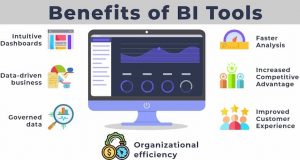
You Need To Be Leveraging It Just As Effectively And Frequently
There is a business strategy that you should be using more often whether you are on staff or in management, whether you are in Sales or in Marketing, and whether you have been at your organization for 15 days or 15 years.
Chief Financial Officers (CFOs) are the best at applying this strategy—and most of them take advantage of it every day.
This strategy is: Asking the question, “Why?”
I call it a strategy because it is a deliberate plan chosen to bring about a desired future—achieving a goal or solving a problem. Asking the question “why” in a meeting is really the art of marshaling resources for their most effective and efficient use. The primary goal of using the question “why” is to protect your company. CFOs apply this business strategy religiously as a way to stop intended spending, delay spending, or ensure that spending is done wisely.
Everyone, not just CFOs, should master leveraging this strategy. When used effectively, not only will this question protect your company, it will:
• Help you learn
• Make others prove or justify their thinking
• Create a better end product or service
“Millions saw the apple fall, but Newton was the one who asked why.”
Bernard Baruch
How often does a weak idea get funded and executed because no one speaks up and asks “why?”
Asking the question “why” in meetings is not just a broad business strategy—it is a specific marketing strategy, sales strategy, and management strategy. Here are a few real scenarios that I have been in at various companies. Any of them sound familiar?
Marketing
You are sitting in a trade show selection meeting and someone has proposed spending a significant amount of money to go to a big, general trade show that you went to last year.
Time to ask “why?” You get the following responses:
• “We’ve always gone to this show”
• “All of our competitors are going to be there”
• “Sales gets to see people there that they can’t get on the phone”
Did anyone present any data that showed the opportunities and revenue generated from last year’s participation? Did it show a strong ROI? Moment of truth, do you fund the trade show proposal get based on anecdotes and gut feelings or do you reject it? Asking the question “why” provides more discussion—a safety net—before the final decision is made.
Sales
You are in a sales management meeting and the VP, Sales announces that the entire organization is going to change the way that they sell with training on a new sales methodology. Overall, the team did not hit its numbers for the year and he says that this selling methodology overhaul is going to fire up the team and get them back on track. There is a lot of buzz in the room.
Time to ask “why?” You get the following responses:
• The VP, Sales had heard self-proclaimed thought leader Missy So-and-So endorse this new sales methodology at a recent conference. She is the thought leader who came up with the popular term “melling” * (marketing and selling) and the framework, “The Four B’s to Selling.” *
• The CEO just finished an e-book about the new sales methodology
Have the thought leaders who presented at the conference or authored the e-book successfully implemented the new sales methodology themselves? Is this really the right route to take to fix the sales woes? Is the real issue around sales management? Can anyone cite any revenue-driven data, research, or use cases about the new methodology? Even if everyone agrees that the new sales methodology makes sense, do you really need training to implement it? By asking “why” you force everyone to consider any risks, all costs, and other solutions before proceeding.
Executive Management
You are sitting in the monthly VP meeting of a privately owned company and the CEO comes in and says that he wants to change the direction and structure of the company. You would be surprised but he did the same thing a year ago. You were silent last time and look what happened. o you ask “why” this time?
While I have provided a few scenarios, there are literally thousands of scenarios within a company where asking this simple question could dramatically improve the company output.
I challenge you to ask the question “why” more in meetings in the coming months.
No matter who you are, I think you will find that it will help you learn, make others prove or justify their thinking, and create a better end product or service. You may even save some money in the process by refining the proposed action or by delaying or cancelling the activity. All of these benefits can only help the company. Great thinking is driven by questions. Conversely, as you propose activities that require funding make sure you can answer the question “why?”
In an ideal world, everyone should be in position to ask “why?” If an idea is good, it can hold up to scrutiny and will be supported by data or strong reasoning. Unfortunately, we do not live in an ideal world. Some people have egos and insecurities. Not all opinions are weighed equally.
While I do recommend asking “why” a lot more often than you have in the past, be careful and smart. You don’t want to be booted out of the company one day asking yourself “why?”
How have you been using the question “why” and how has it been working for you?
“Leadership is not about titles, positions or flowcharts. It is about one life influencing another.”
John C. Maxwell
Photo credit: www.unemed.com
Business & Finance Articles on Business 2 Community(30)
Report Post








